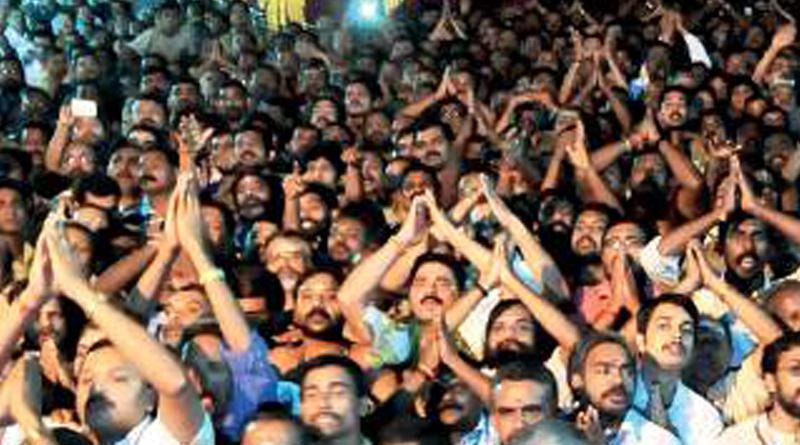Dear Mohan Bhagwatji, In your Vijayadashami speech in Nagpur, you spoke on whether women had the right to freely enter the Sabarimala temple. You said the faith and traditions of crores of devotees for centuries were ignored by the Supreme Court. You added that mere laws could never create a harmonious society, and decisions on matters of faith, taken without patiently creating a new social mindset, will “neither be adopted in practice nor create a new social order.”
Really? Then, logically, you should ask Narendra Modi to abolish the new law on triple talaq. After all, triple talaq too constituted the faith and tradition of crores of devotees for centuries, yet the Supreme Court ignored that. So, do you believe the Supreme Court verdict (and subsequent law) on triple talaq will “neither be adopted in practice nor create a new social order?”
Your party touts the abolition of triple talaq as a great BJP blow for women’s empowerment. You say the fundamental rights of women, enshrined in the Constitution, must triumph over Muslim traditions that have no place in an enlightened 21st century. I agree 100% with you. Surely, it follows that the fundamental rights of Hindu women must also triumph at Sabarimala.
No? Do you think that only Muslim women have fundamental rights and not Hindu women? If so, please explain. And if you want to treat Hindus and Muslims differently in gender matters, please clarify whether laws on sexual harassment should apply only to M J Akbar and not to R K Pachauri.
You would be correct in saying that new laws will not instantly change traditional beliefs and practices. Yet new laws do indeed have some immediate impact and push society in the right direction.
In 1951, the Constitution abolished discrimination based on caste, religion or gender. This offended, and went dead against, many traditions and beliefs of Hindus, Muslims and Christians. That did not deter the Constitution’s framers, including Shyama Prasad Mukherjee, founder of the Jan Sangh, which later morphed into the BJP. He would have told you that social transformation requires radical changes, even if they hurt traditional religious sentiments. That logic applies to both triple talaq and Sabarimala.
Has the Constitution succeeded in ending all forms of discrimination? No, these evils are still widespread. But the Constitution has helped greatly change the social mindset. The status of Dalits, backward castes, tribals and women has improved enormously (though not enough) since 1951. The reservations of seats in legislatures and panchayats, government jobs and educational seats for Dalits, tribals and backward castes is completely contrary to traditional Hindu practice, but has ended the historical monopoly of upper caste power. Much remains to be to be done in ending discrimination, but much has also been achieved. This vindicates the case for Supreme Court verdicts that uphold Constitutional norms against traditional religious practices.
Every religion has good and bad traditions. The elimination of bad traditions should be seen as an improvement, not an attack, on religious faith. Traditions have undergone huge transformations over time, for good reason. Despite what the Ramayana says, today nobody will advocate that the chastity of a woman should be tested by making her pass through fire. Despite what the Mahabharata relates, today nobody will espouse the right of an older brother to gamble his younger brothers and wife into slavery. This is not the dilution of Hinduism, but its evolution.
Bhagwatji, some accuse the RSS of religious fundamentalism, but I recognise it as a moderniser of Hinduism, although more flawed than the Arya Samaj or Brahmo Samaj. The old Sanatan Dharma viewed caste distinctions as fundamental. It viewed Dalits as untouchable, and tribals as “mlechhas”, barbarians outside Hindu society. .
The RSS has, rightly, abandoned these traditional notions. It believes Hindus were weakened for centuries by such divisions, and so seeks to abolish the old distinctions to create a strong, united Hindu society. Despite internal contradictions, it seeks equal status for Dalits with other castes. Despite similar contradictions, it seeks the votes of women as equals. It rejects the concept of tribals as mlechhas, and seeks to integrate them fully into Hindu society. That is progress.
Bhagwatji, your own party has long demanded a Common Civil Code for people of all religions. Here again, I am 100% with you. But this Code will mean, by definition, the abolition of some traditional practices of all religions, and the creation of new universal norms. This will offend traditionalists of all religions. So what? Let’s do it regardless. And let it go far beyond triple talaq and female temple entry.


